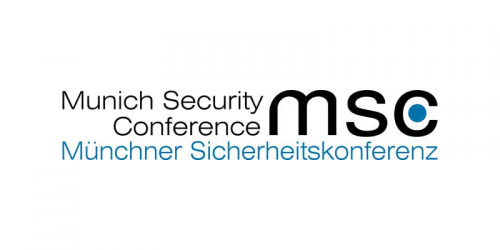
Munich Security Report 2017
Post-Truth, Post-West, Post-Order?

Is the world facing disorder and the rise of illiberal actors? Just ahead of the 53rd edition of the Munich Security Conference from February 17-19, the Munich Security Conference Foundation released the third edition of its annual report on key issues in international security (download a PDF version of the report here).
Entitled "Post-Truth, Post-West, Post-Order?", the Munich Security Report 2017 offers analyses, data, statistics, infographics, and maps on major developments and challenges in international security. The report aims to serve as a companion and conversation starter for the discussions at the Munich Security Conference 2017 and as background reading for participants. At the same time, it is also made available to the interested public. Last year's report was downloaded more than 25,000 times, with significant press coverage in both German and international media. Twitter discussions about the report are led under #MSCreport and the hashtag for the Munich Security Conference, #MSC2017.
Central topics of the new edition include the crises of the international order and of liberal democracy as well as European security and defense policy. In addition, the report assembles information on the jihadist threat, the manipulation and "weaponization" of information, and the security situation in the Pacific and the Middle East.
few select highlights of the report:
- An exclusive analysis by McKinsey & Company assesses and compares the number of major weapons system categories used by the armed forces of the United States and of European states: 178 in Europe, 30 in the US. The analysis also shows how the defense industry in Europe has consolidated over recent decades.
- Projections by IHS Jane's Defence Budgets show that until 2020, defense expenditures will barely rise in Western Europe but will increase by more than 3% annually, on average, in Eastern European countries.
- Analyses by multiple sources find that a mounting number of citizens who live in democracies believe in authoritarian solutions, and indicate a decline of freedom in the world.
- Data compiled by IHS Conflict Monitor establish that only 20% of Russian air strikes in Syria in 2016 were targeted at Daesh/ISIS.
- Exclusive polls on public opinion in Iran conducted by the Center for International Security Studies at Maryland show: a majority of Iranians is convinced that European countries are moving slower than they could to trade and invest with Iran due to fear and pressure of the United States.
- Newly assessed and in part unpublished data by the Organization for Security and Co-operation in Europe (OSCE) illustrate the number of ceasefire violations in Ukraine as well as how the conflict parties have been obstructing the work of the OSCE Special Monitoring Mission.
- Previously unpublished analyses carried out by the Hertie School of Governance compare the budgets and social media reach of state-funded public international broadcasters: Russia's RT and China's CCTV rank especially high. In recent years, these states have also made strides in expanding the global presence of state-funded cultural institutes.
- New analyses by the International Institute for Strategic Studies' "Military Balance 2017" show the current state of Russian missile capabilities in Kaliningrad as well as China's expanding naval capabilities. Moreover, an overview of the US presence in the Pacific is provided.
- An analysis by the Center for Nonproliferation Studies and the Nuclear Threat Initiative documents North Korea's advancement towards a nuclear intercontinental missile that could reach the West Coast of the United States.
- A framework of risk-enhancing factors created by Chatham House depicts how the outbreak of a deadly disease can evolve into a global pandemic. Chatham House also shows, based on WHO data, that 60% of all attacks on health care infrastructure since 2014 were deliberate.










Add new comment